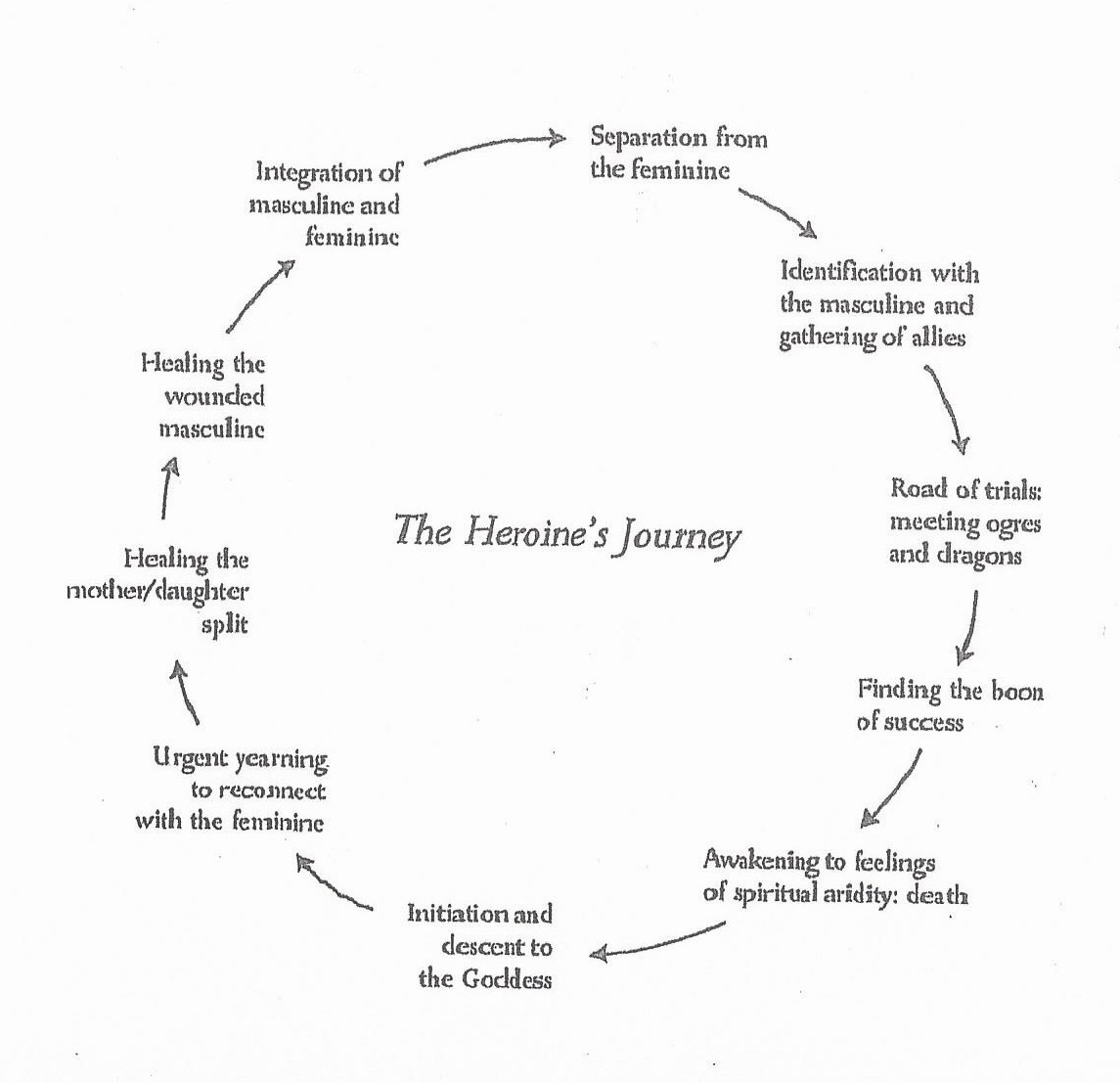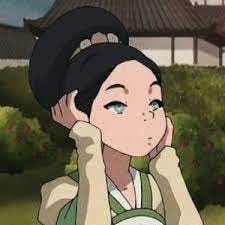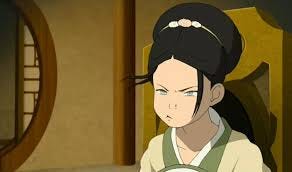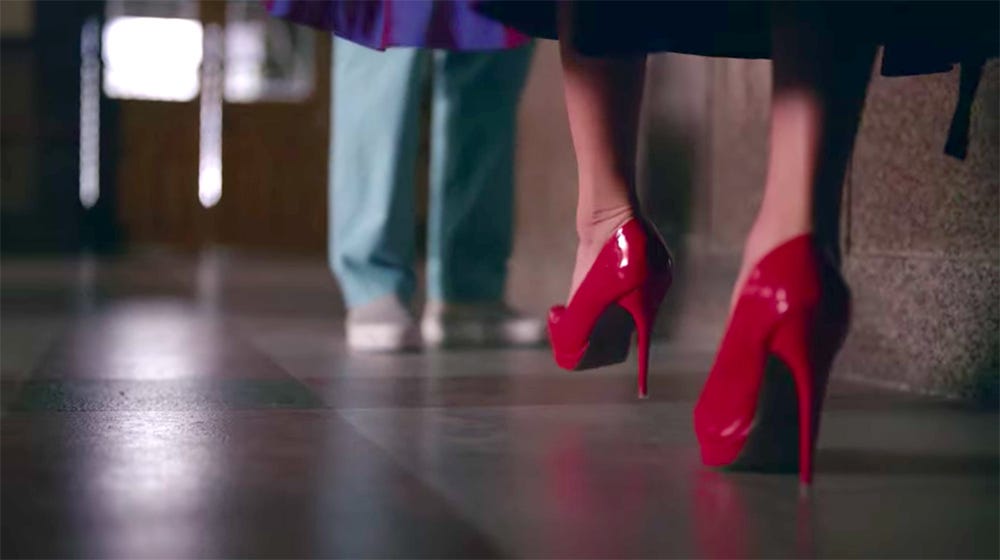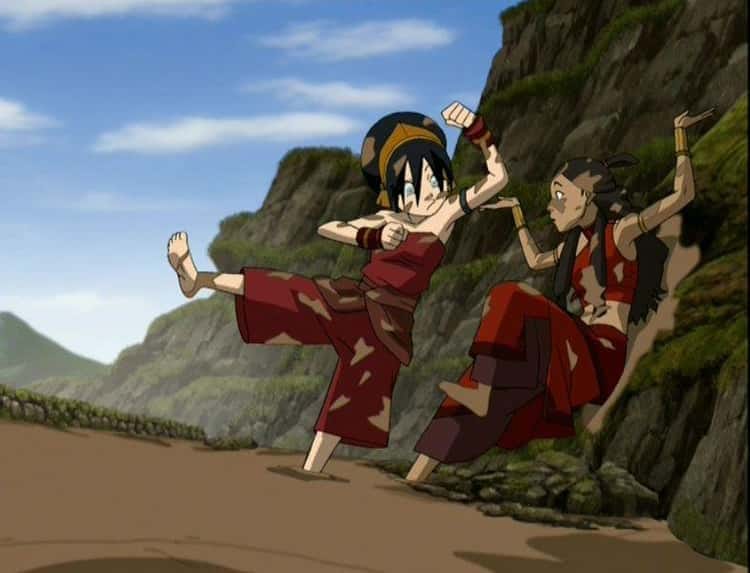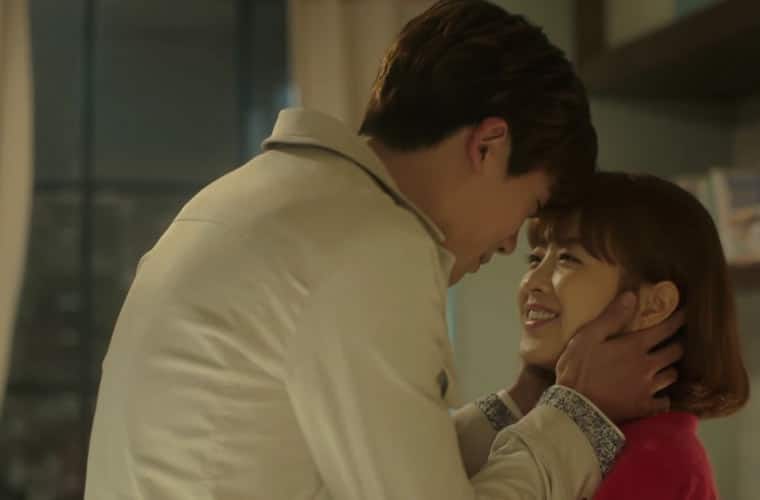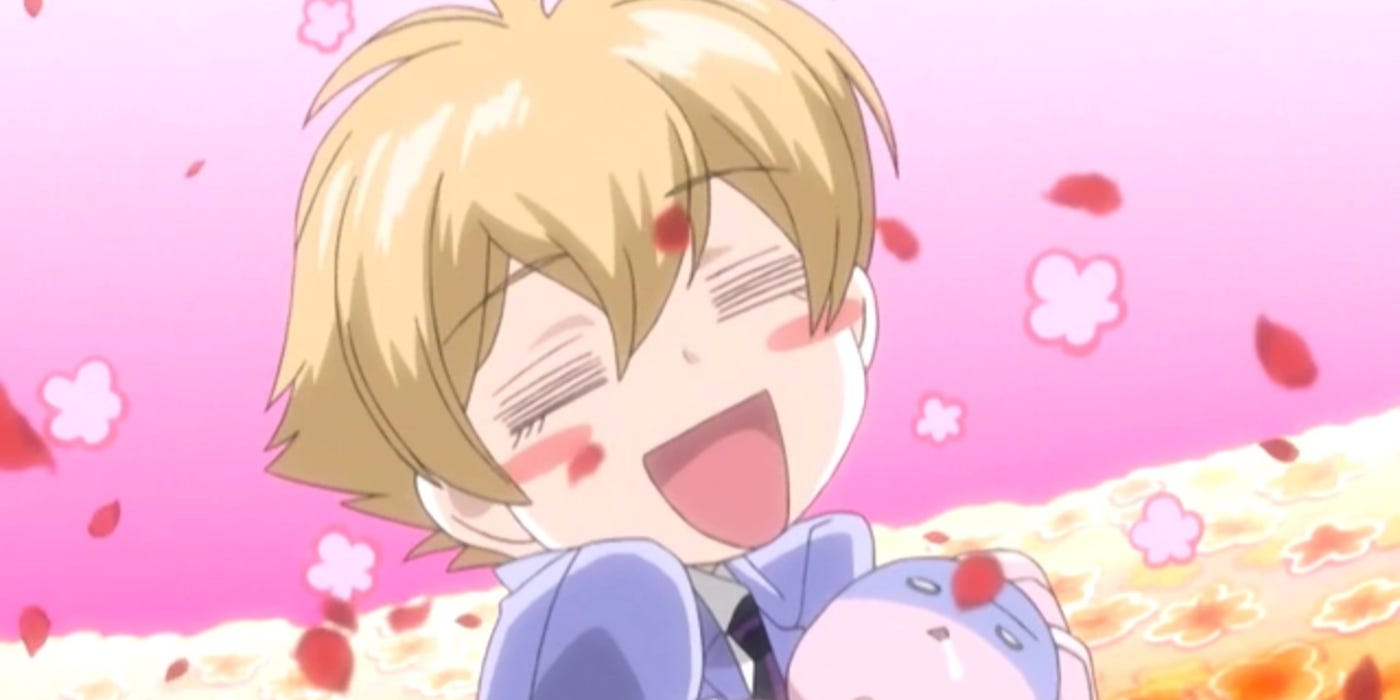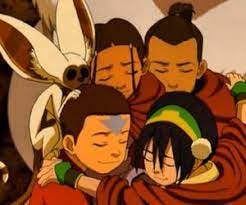Romeo:
Amen, amen! but come what sorrow can,
It cannot countervail the exchange of joy
That one short minute gives me in her sight:
Do thou but close our hands with holy words,
Then love-devouring death do what he dare;
It is enough I may but call her mine.
Friar Laurence:
These violent delights have violent ends
And in their triumph die, like fire and powder,
Which, as they kiss, consume: the sweetest honey
Is loathsome in his own deliciousness
And in the taste confounds the appetite:
Therefore love moderately; long love doth so;
Too swift arrives as tardy as too slow.1
***
The prince is raised in harm, cast into the fire that ravages the borders. So make him a looking-glass to see the world he’s left behind — something to reveal the girl at her window, locked in the heart of the city, far away from the borders.
We have woven one tale. Unbraid it so we may retell the hero’s journey to be the heroine’s2. Swing to find a new face and through her, sing of the body. We move from the home of Mars to Venus’ domain, from the Sun’s spiritual triumph to the Moon’s material delight. From striking out into the wild to submerging within, from severance to rejoining. Move with us from the fire that rises to the ether — divinity recognizing divinity — to the base earth uninterested in lofty holiness3. In the soil of Taurus, we find a girl who leaves her sky-palace to move among the mortals instead because a monster’s sense of pleasure is freer than a stuffy god’s.
What is the difference in the pleasure of a god and the pleasure of a monster? Why must one be maintained and the other denied?
Here is how the story goes: a body is confined by caretakers in the name of safety, taught lovingly to confuse stillness for security. This body becomes a site governed by fear and tension, its joints stiffened into immobility. This is the story of Toph, bound by her parents in the name of safety, suffocated by comfort, locked up in their home until no one knows she exists.
In Taurus: what does the fear of harm make us settle for? What sacrifice does comfort require?
Remember with me everything you’ve been taught to forget about Taurus: a lush, rich, fertile swamp reflecting the feral nature of its domicile lord, where the flytrap grows as abundantly as the lotus, fed by being both a benefic’s home and a luminary’s resort. We start the story with the domestication of Venus the war god, pruned into an underestimated tittering court lady, the swamp drained to be a garden. In this environment of powerlessness, Venus’ desire for control becomes even more intense, practiced first on her body and then on others around her. She is never allowed to slip so she never learns to fail.
Toph is dressed in silks as the heir of the richest family in town; her parents hire a teacher to educate her in the art of earth-bending but forbid him from any advanced lessons because of Toph’s blindness. A story of the body is incomplete without a story of disability. Remember all the structures raised to protect the vulnerable from themselves, all the structures that use health as an excuse to imprison instead of adjusting around the alien body.
In enemy territory, Venus becomes the enemy’s ideas of good to survive, ‘someone who waits and listens before striking’4. Toph learns earth-bending from the moles and conceals her growing power from her parents to avoid conflict. In Taurus, she is in the place of Martian detriment where disagreement is an act of movement and disunity.
Because the Moon and Saturn both rule the two ends of a physical form, they both impart lessons on mastering your limits and being guided by them. Toph moves within her blindness, seeing with her feet, using her body to create an unbeatable strategy. In fighting arenas, she is the Blind Bandit, banking on the Venusian advantage of being underestimated. Where Scorpio is the hat-tipped-down spy in a dark booth, Taurus is the exotic dancer laughing on the stage, jumping from one man’s lap to the next, flirting as she steals the documents from their coat pockets, committing violence from the spotlight because she hides in plain sight where no one cares to look.
In Venus, the duality of war and pleasure, forced apart into two personas because there is no room in this society for her to be both. In Venus, the marriage of art and violence as two in a long list of things that draw people together. In Venus, the unifier who understands exactly how to twist people’s ugliness to her advantage. When Aang steps up to Toph, she derides him, ‘Do people really wanna see two little girls fighting out here?’ This is the sacrifice power takes: sometimes, your body must also be implicated in the violence you wish to inflict. Often, power is antithetical to freedom because power must always come from others. To get them to submit to you, you must be their ideas of someone worth submitting to, instead of your own ideas of what you please.
There is a cost to hiding too well, to melding into someone else’s ideas of power and worth. You slowly become invisible to yourself when you’re always playing the roles other people want to see you in. Toph and the Blind Bandit can never be in the same room together or they would both lose the power they have amassed separately. Ideas are always permeable; being pickled in them for decades will change you. Living only in comfort steals something of yourself from you, just as living only in harm stunts you; in both these zones, there can never be any change. In both Taurus and Aries, there is only ever the now. There is only ever you and your survival, until you forget your duties to everyone else.
Somewhere, Toph accepted that this was the way things had to be and told Aang that justice through defeating the Fire Lord was not her problem. Bargaining for power ties you forever to the people you bargain with: people you must defeat, forgive, surrender to, ally yourself with, to all the pawns you move around on your chess board so you can keep getting ahead. How long will you draw this play out so it never ends? Trying to stay in the center and away from the border stops being a choice because somewhere, you wove the web too tightly to get out without drawing attention, without cutting ties.
Harm becomes difficult to picture because it is always talked about so fearfully, amplified to incomprehensible proportions. And so, it becomes difficult to administer and contain. The known and mastered violence — the fixed violence — feels safer than the danger of venturing into the outside you never got to see. But you can still build a relationship to risk if you walk with those you trust and love for sharing your values. If you must always be tied to someone for the bargain of connection and safety, choose wisely. In Taurus, I hope you learn to let go and see for yourself that no collapse is too great to survive. From the ashes of the forest fire unfurl the new blooms.
Toph is the undefeated champion, never truly challenged until Aang — Aang her friend, who encourages her to break free from what she has always known, Aang who came seeking a Venusian teacher after being unimpressed by Martian man after Martian man displaying brute strength instead of technique and finesse. In Taurus, Venus may be bored of stagnation but she is still afraid of change for how it costs her power, so she never takes well to losing.
In Mars, conflict for protest’s sake. In Venus, conflict only for victory’s sake. Toph storms off after Aang knocks her off, demanding to be left alone. Fitting that the only one to defeat her is another Venusian child, sad that he upset the girl he only wanted to speak with so she would become his teacher.
When he comes to her garden to find her, the trash-talking beat-it Toph scares him away by pitching her voice to be more feminine and calling the guards, playing into everyone’s ideas of her weakness by folding her hands meekly across the front of her dress.
Venus is less femininity itself as she is the chameleon strategist, shifting into whatever we believe to be inferior to disguise herself so her path to victory is easier. And in her, we see how femininity itself is endless shape-shifting, endless reinvention. But once again, the cost comes up. It chafes at Toph’s pride to be patronized like this, to never be publicly respected.
All this mastery, all this power and for what? To always remain hidden? But can you complain when you designed it to be so? Can you whine when you fear that attempting change will make you lose everything you built? Can you sulk when your own terror of endings keeps you bound to this claustrophobic airless system that only gets narrower around you as you realize that all your ideas of worth and power were wrong? And that no power is worth this degradation?
Finally, Venus gets to make the garden the swamp she has always wanted it to be. Finally, Toph gets to assert the power she mastered in secret and display the full force of the fangs and claws she hid in her Beifong silks. As she creates a dust cloud so everyone is as blind as her, she picks off her kidnappers one by one to rescue Aang instead of letting her father lead her away by buying her freedom. Like a war god, she extends the fight because this is a sport to her.
An unfazed smirk, a calculated throw, the Beifong princess is now the best Earth-bender of her time, finally with friends who respect her power and let her handle her conflicts herself. Friends who understand that caretaking doesn't mean control or imprisonment.
Remember with me Taurus’ exaltation lord: the untamed Moon, her eyes gleaming, her penchant for mania known by all who love her. In her honor, the season she begins becomes midsummer madness. Because she is mad, because she rules the lunatics, the Moon gets to be eccentric like Bumi, free to desire and pursue what she pleases, free to wax and wane.
In Taurus, she is bound in her celestial palace because this is the beginning of her journey and self-discovery, until she can build her own home in Cancer and nurture others and herself on her own terms. As Toph talks about her condescending parents, Aang asks her why she doesn’t leave a place that makes her unhappy. Here, she pays the Venusian cost: she believes in her own dependence on her caretakers, believes in the necessity of a stable base of support even if it imprisons her. Even as she envies Aang his cardinal Libra freedom and movement, Toph can’t yet imagine where she would go away from here.
As Toph’s Blind Bandit skills are revealed to her parents, her father claims he has allowed her too much freedom. Look at how the able-bodied frame surveillance as care. Look at how he tells Toph she will be guarded and how he separates her from her friends, immediately after she says she’s never had a real friend because she’s always been surrounded. Remember the value of the Moon’s luminary selfishness. Fairytales teach you to fight for your pleasure or you will get walked all over. Leave the palace, moon-child. You must build your home yourself.
In the first attempt at control, they seize your source of pleasure from you because it has given you too many ideas your fragility does not allow. Toph must no longer fight, no longer speak to her friends because it helps her imagine a community without control. Her father uses Venusian wealth and influence to bind her to him. Her gilded cage closes tighter around her.
Venus is both the war god and the god of pleasure because there is no way to avoid discomfort if you want something for yourself. Sometimes, you will sustain the harm. Sometimes, someone else will because you will take something from them. In Taurus, your caretakers are wounded by you standing your ground, hurt by your demand to be free to change and grow, upset that the Moon-child is no longer a dimpled doll. The star-bride wants to leave her home.
Taurus is a lunar sign, ruled by a lunar luminary and a lunar benefic both known for their own specializations in duplicity. In that vein, it is a private sign that keeps to itself. The sign that gets associated so frequently with community is one of the signs that struggles with closeness the most because it has been taught dependence means relinquishing power, means inviting betrayal and disappointment. Toph is pushed to her limits by her parents’ reaction to her trusting them. The Moon opens herself up; Venus asks instead of simply taking. Rebuffed by their refusal to listen, Toph runs away at night to join Aang, Katara and Sokka, the people who always let her choose her own values. Benefics and luminaries both do not take well to being bested, even by their own parents.
Taurus is an overcoming square with Leo, the domain of the celestial body that symbolizes the father. Toph gets the last word over her patriarch but he still pursues her, claiming the Avatar kidnapped her even after witnessing her strength for herself. This is what being unable to break the spell that the Moon’s governance of the physical body is not a curse looks like. To be mortal, to have fun, to desire pleasure is not a weakness or a threat. Taurus is the site of that realization, the middle of springtime youth and bloom.
Fairy-tales and the Moon teach you how the people who were supposed to keep you safe locked you up in a tower and made you miserable. Snow White’s stepmother conspires to kill her over beauty. Cinderella’s stepmother forbids her from the ball just to spite her. Your pleasures are corrupted and turned against you to keep you lonely. For Aurora, something as sweet as sleep becomes a curse. Snow White is poisoned by an apple she declares beautiful. Ariel is told that if she wants the prince, she must give up her voice, driven to this destructive bargain because of a parent who refused to listen to her and grant her wish plainly. Walk on legs that feel like death because your guardians could never free you from themselves.
Again and again and again, sacrifice. Again and again and again, the war against those who think joy is so scarce that there can only be one to covet it. Again and again and again, the desperate fight for pleasure, the triumph of desire over all odds. All the lessons about shame, all the terrifying endings about regret, but every time, the princess leaves the safe comfortable center and goes out in search of her happiness. She dances at a ball in her glass shoes. She leaves her tower by using her hair. She falls in love with the beast her village tries to burn, in the name of saving the girl they derided for being as strange and as Other as him before they could use her for their own ends.
The invisible crowd peoples the story silently in its condemnation of a girl who wants too much, who should embrace the imposed limits instead of creating new ones for herself. Ko Mun-yeong is triumphant when she declares that obsession is noble5. It is as stubborn as its master because it understands you too well, because it knows it has to keep rattling in its cage until you release it. Your longing is your child; for that, it will always out-endure you. How far will you go to be united with your desire? In Venus, the whore. In the Moon, Madonna. In Taurus, the fusion of the binary into one comet-trail of zeal, fervor, hope.
Again and again, the girl realizes that the center she tried so desperately to make her home in, the center she was promised would keep her and her fragile feminine body safe from the big bad masculine Martian wolf, was never comfortable to begin with because it asked that she surrender all her wildness, her appetite, everything that couldn't fit if she wished to get along. As Toph leaves her home, she begins a journey of sinking back into herself, fighting frequently with Katara because Toph is yet only Venus the war god, not Venus the unifier or the Moon as a pleasure-maker.
Her sense of fun is still only about herself and therefore, unaware of consequence. But just as she needs to learn, so does Katara, whose sense of youth was culled by the beginning of summer and the harvest. In Cancer, we know the Moon as responsible and wise. In Taurus, we get to see her be young and frenzied and greedy again, as Katara attempting a dramatic scam with Toph to rediscover her own relationship to risk, her own satisfaction in winning and shining as the luminary as she is instead of only the caretaker.
In Taurus, there is the seed of a paradox: Venus finds her pleasure in law and order, in other people’s games, in cementing her rule and emerging victorious. Both the Moon and Venus govern matters of relation — both power and pleasure require others to create it with — but they come at it from different angles. The Moon desires her share of attention too but she wants the home, not the court. She wants care-taking, which requires trust and vulnerability, requires reciprocity to run a community, requires equality between the participants.
Everyone’s body will become disabled at some point. Most already are because our ideas of productivity drain us dry, stunt us into accepting pain and suffering or risk being discarded as useless. Sickness becomes a personal moral failing. Our beliefs about health falsely assume an impossible stasis. Get tired only three times a year because the baseline is vigor. Capitalism quantifies vigor to its own benefit and demands it look the same for everyone. But in Taurus, we know this way defining sickness as antithetical to health is untrue.
Sickness is the conjoined twin of health, always informing its sibling's directions. It is the leader that the other one shadows. They will always be together instead of apart because sickness cannot be banished. To believe otherwise is to fool yourself. It is the consequence of a body meeting an environment, of something being alive and being in eternal flux as it adapts and fails and adapts. The environment is never always friendly to your expectations. Your hospitable is not the swamp’s hospitable.
Everyone needs help because the limits of the body are only overcome in community with other breakable living things. The only way to belong to each other is to start from a place of need, not a place of conquest. Our ideas of health are incorrect because they are informed by capitalist ideas of worth. What does connection look like outside of this power play? What does power mean when you use it to give instead of taking?
Initially, Toph chafes against Katara. Both are terrified of pleasure in their own ways, afraid of getting accustomed to something so indulgent. Toph rejects the emotional vulnerability Katara demands, thrilled only by victory. Katara rejects Toph’s insistence on fun, overworking herself to do the care-taking. Toph accuses Katara of being a buzzkill mom; Katara accuses her of missing the parents she left behind and repressing those feelings.
The thing about desire is that it sometimes pulls you back to the people who hurt you. It is difficult to keep yourself safe when it's so loud, always on the precipice of excess, always threatening to glide beyond your control. Desire is often a source of shame: either because of others’ condemnation or because of your own traitorous heart wanting care from the same people who deprive you of it, who say you are not worthy of love as you are. They teach us that desire is weakness, that pleasure is artificial because true belonging requires proving your worth by sustaining harm.
Toph is often afraid of being seen as a child because she is the youngest of the group. She is prickly and defensive about belonging because she never got the chance to practice it before ending up in a group of children with similarly strange family backgrounds: one reeling from a genocide and a century of separation, two from isolation and a father away fighting. What she had with her family was enmeshment. Belonging is different. With belonging, you still fight but you fight as equals. You need each other the same. You are finally more afraid of hurting than being hurt because winning is no longer required. And simultaneously — the beauty of it — you are free to fight. Toph could never argue with her parents but she yells at her friends. What do you think happens to Venus then? How disoriented does it make her to relate to people outside of competition, seduction or worthiness? How lost is she when she realizes there is nothing to win because there is no enemy?
I think of how your right to meanness can be a boon granted from your loved ones. They allow you to flash your claws and snarl because they know you were forced to bend and cower before this. To be loved wholly means to be acceded conflict. It is only when you are accepted as you are that you understand how Venus and Mars belong together.
Enmeshment makes you terrified of support because it teaches you that to be loved is to be overwhelmed, until there is nothing of you left. So you learn to suppress that wild gnawing hunger inside of you for self-preservation, ignoring its persistent growth or whetting its appetites with poor substitutes. Art instead of community instead of with community, consumerism to substitute for safety by getting an object that won’t change, victory after victory because respect and intimidation will keep away those who may try to harm you if they find you weak.
To be worthy of love in enmeshment, you must be as helpless and dependent as a child. Of course, the forcefully extended childhood makes you want to grow up and shed it as soon as you can, because childhood is now fused with helplessness in your mind. To make your own way, you put pleasure away as something only kids can have, in their funny cartoons and sugary treats. There is no room for cuteness in Venusian victory or lunar caretaking because both of them are exhausted.
As you grow older, my tower girl, may you reconcile both your domicile lord and exaltation’s lord priorities in you. As you gain more power, I hope you pursue more pleasure as well instead of finding them contradictory. The antidote to harm is compassion, not power. In fact, I hope you reject power that requires such sacrifice. There will be lunar things that will slowly bloom as you fight yourself less and release control: a desire for sweetness, cuteness, ease.
The hatred of the ‘infantile’ woman is often framed as feminist because she is disrespectable to a cause that insists on worth and ability. She is a site of our anger and disgust when everyone has something they’re babyish about, some place where the Moon can emerge and be gluttonous. We say she makes women look bad because something about her hits too close to home when you have sustained so many losses to be respectable. You gave up hopefulness, gave up beauty, gave up softness, and are now afraid of looking back and wondering if the bargain was worth it.
Is sentimentality such a sin? Is true strength not accepting yourself as you are, with your lunar limitations and longings? Is it not locating your stability within your body and capacity as you emancipate yourself to pursue your pleasure and your joy with everything you have?6
You cannot build your fortress on swamp land. Your foundations have always been rooted in something that moves imperceptibly and slowly, and so, you believed it would never move at all. The door yawned open, nudged by the shifting soil. Go forth. Write to me about the rhythms of the new lands that claim your feet, about the earth that hums in alignment with your body because it knows how to accommodate its child.
Tell me how it feels to sing and to feel the ground echo under your feet. Dance and see how much your music was missed.
Venus is the god of war and pleasure because wanting is brave, because pleasure must be fought for and is worth the war. The Moon needs a lady-in-waiting in Venus to stand with her as they both rebel and break out of the castle through their underground tunnel. They make the world anew away from the stuffiness of the empire and its decorum, from the class and wealth it tried to bind them with. This is the journey of relocating their wildness and appetites. With Venus, the Moon has someone who understands her weirdness and her capacity for change. With the Moon, Venus has someone who understands relation outside of power.
Together, they make their own beauty, own pleasure, own war in the new ugly liberated world in a lush swamp.
May a Martian man bring you what you need to hear because you’ve learned to not fear the Other. Ko Mun-yeong is tired when she says the only good part of a fairy-tale is the ending. May a friend teach you the middle can be good too.
book with me at twitter.com/ranniazorya or by emailing me at ranniazorya@gmail.com. I offer basic birth chart overviews, profection year consultations, 3-month transit breakdowns (based on your chart) and tarot readings.
Romeo and Juliet, Act 2, Scene 6.
The Heroine’s Journey, Maureen Murdock.
Chaldean order.
This is the type of teacher Bumi tells Aang to seek to learn earth-bending from.
It’s Okay to Not be Okay (2020) (source of the red shoes image).
Ouran High Host Club, Ep. 18. The episode is dedicated entirely to his character development and captures many Taurus values and conflicts.
-
The ATLA episodes mentioned in the letter and pictured: The Blind Bandit (S2, Ep. 6), The Chase (S2, Ep. 8), The Earth King (S2, Ep. 18), The Runaway (S3, Ep. 7), and The Tale of Katara and Toph.
-
the picture under the infantile woman paragraph: Strong Girl Bong-Soon (2017), a show sweetly feminist in many ways.
the picture of the kid under that: Honey-chan from Ouran High School Host Club.
both these characters have immense physical strength and use it as they see fit while keeping their softness and pleasure impulse alive. violence doesn’t harden them, even as they find beauty and strength in it. other people’s criticisms slide off their backs. they are celebrations of Taurean heroism that we forget because we define strength as Arian cruelty, not Taurus repotting.
-
Venus governs both Taurus and Libra. in Taurus, you have the moon’s exaltation. In Libra, you have Saturn’s. That also informs Aang and Toph’s relationship to each other, because the moon and Saturn are bound in the Cancer-Capricorn axis.
Aang adopts Zuko. Toph adopts Iroh. They’re examples of Venusian acceptance of the Other.
-
note: this one had to be more a close-reading essay than as stylistic as I normally would write it as because I decided (like a poor planner) to target as many misconceptions about Taurus as I could. I hit the ‘too long for email’ limit multiple times because there was so much to correct. that’s also why I stuck mainly to one character this time around.
-
more taurus heroes:
mei-lin from Turning Red (2022).
-
this one is dedicated to my Taurus friend, A.Z. may you always be the Toph imp park ranger practicing throwing knives at your door.




